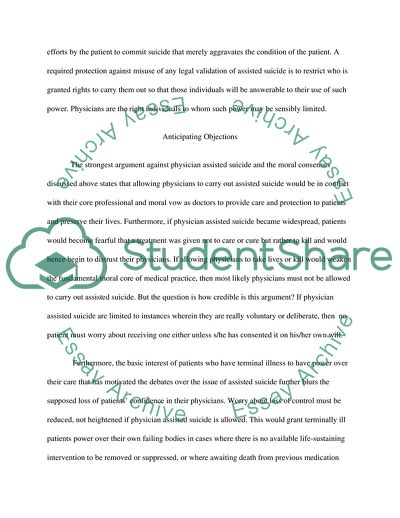Cite this document
(Physician Assisted Suicide Essay Example | Topics and Well Written Essays - 1250 words, n.d.)
Physician Assisted Suicide Essay Example | Topics and Well Written Essays - 1250 words. https://studentshare.org/social-science/1834775-physician-assisted-suicide
Physician Assisted Suicide Essay Example | Topics and Well Written Essays - 1250 words. https://studentshare.org/social-science/1834775-physician-assisted-suicide
(Physician Assisted Suicide Essay Example | Topics and Well Written Essays - 1250 Words)
Physician Assisted Suicide Essay Example | Topics and Well Written Essays - 1250 Words. https://studentshare.org/social-science/1834775-physician-assisted-suicide.
Physician Assisted Suicide Essay Example | Topics and Well Written Essays - 1250 Words. https://studentshare.org/social-science/1834775-physician-assisted-suicide.
“Physician Assisted Suicide Essay Example | Topics and Well Written Essays - 1250 Words”. https://studentshare.org/social-science/1834775-physician-assisted-suicide.


